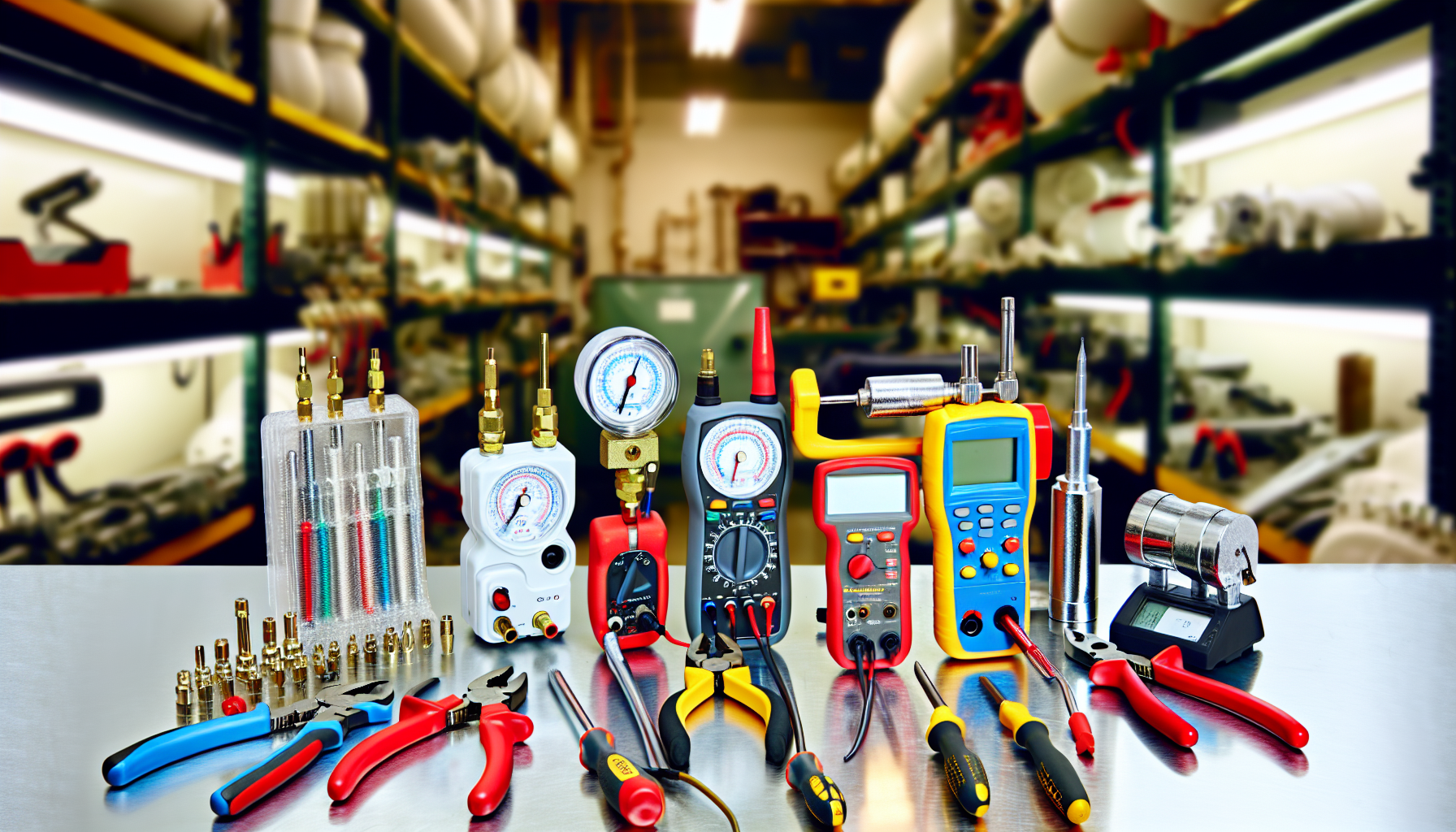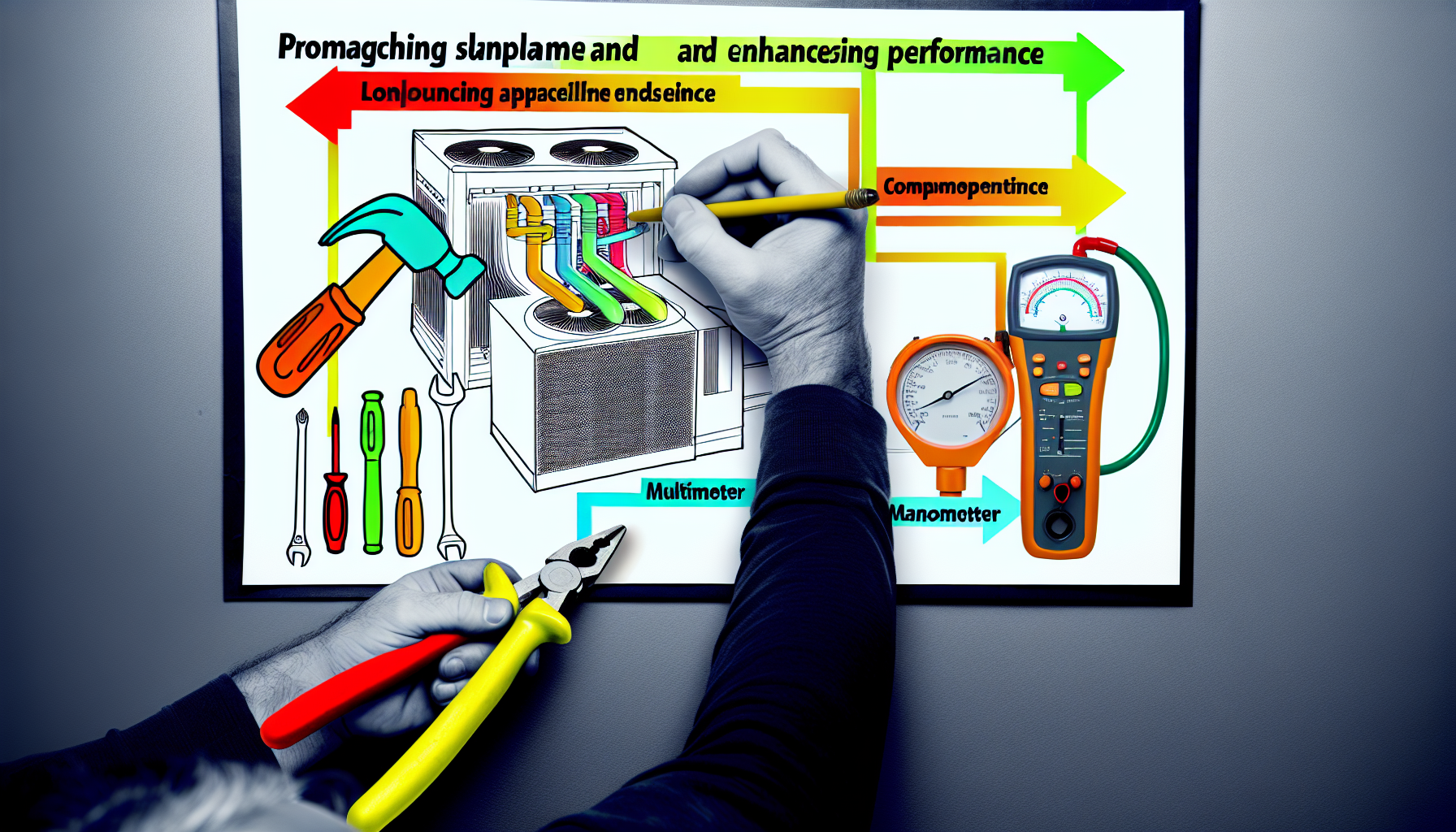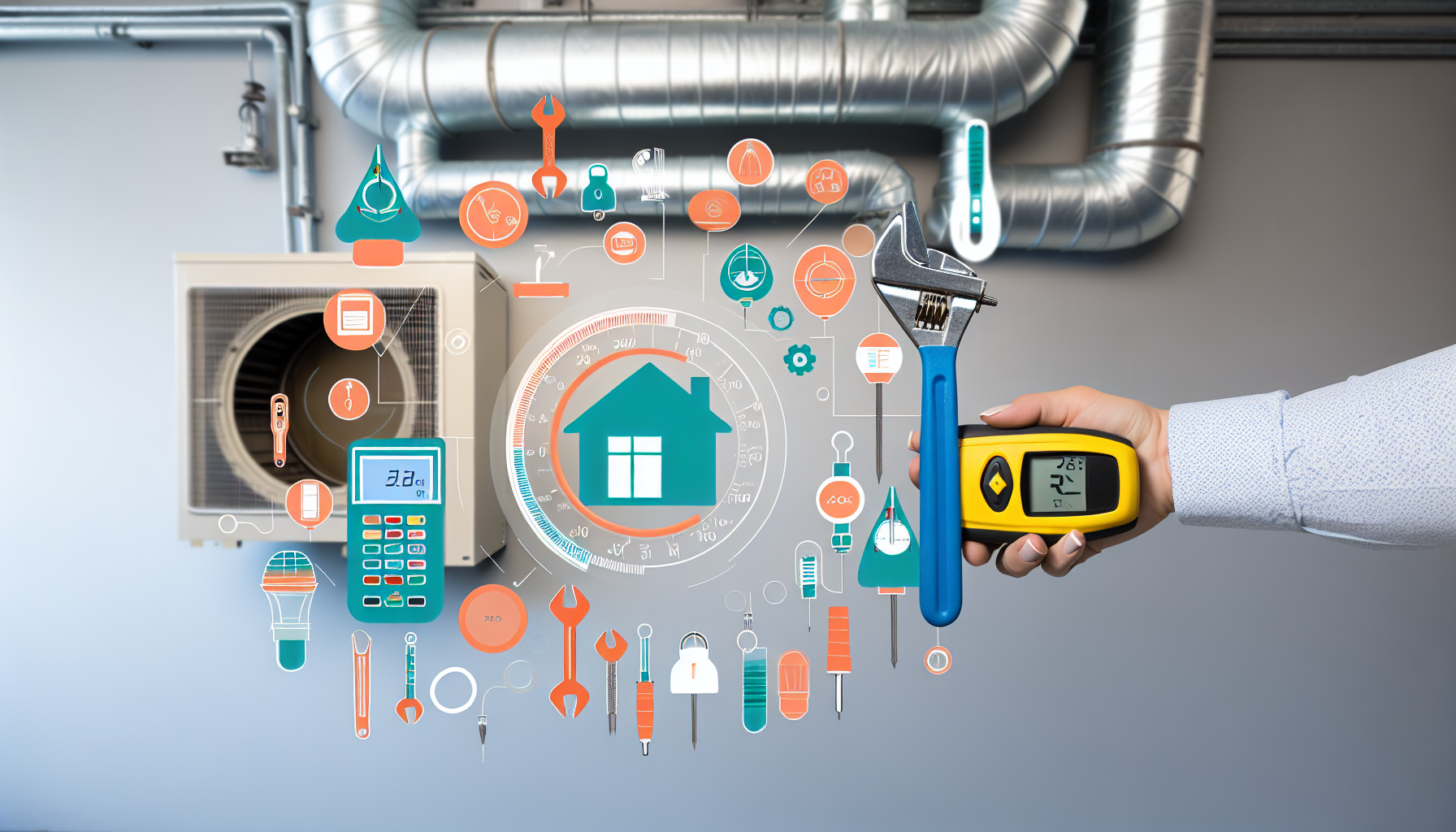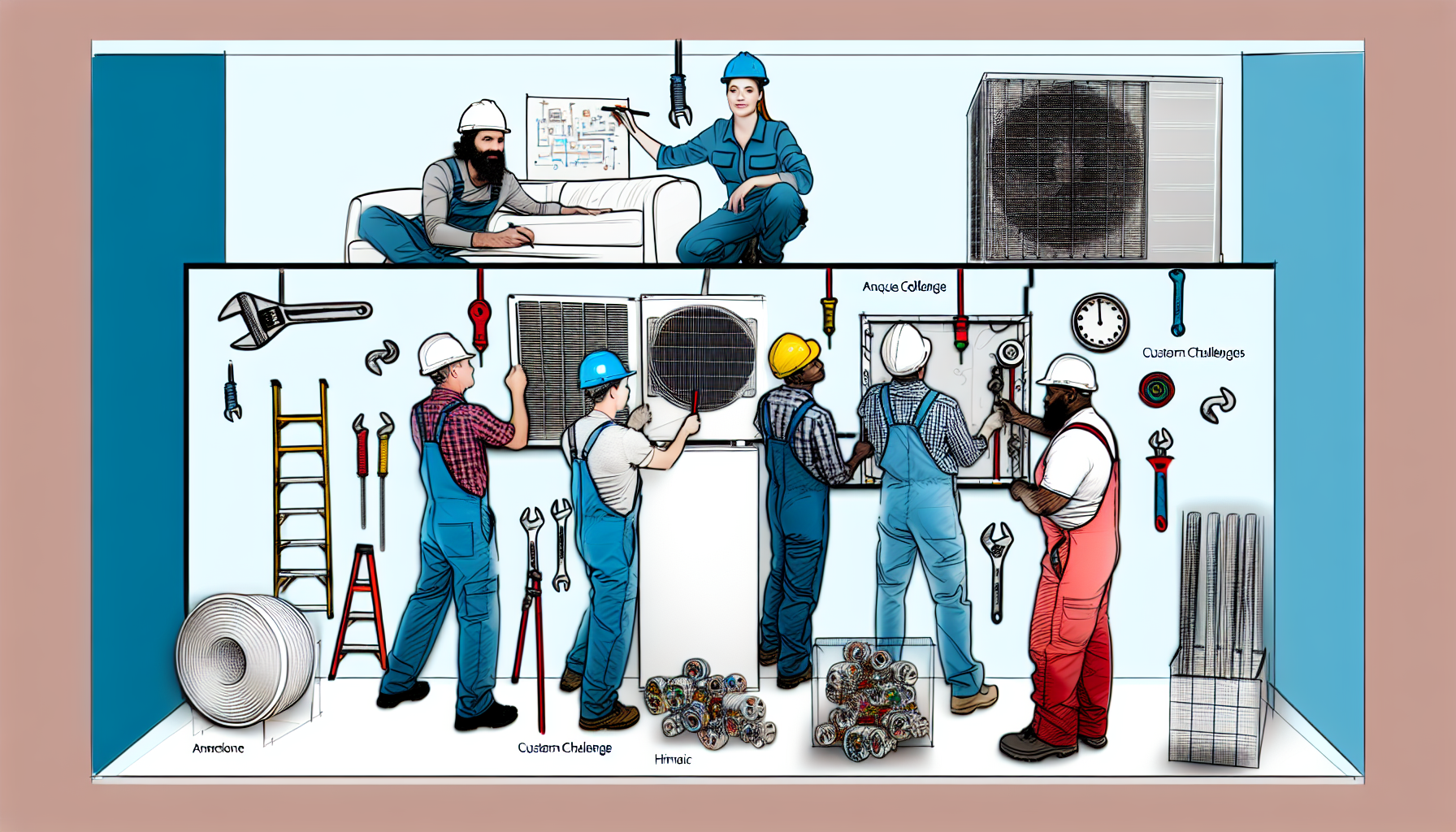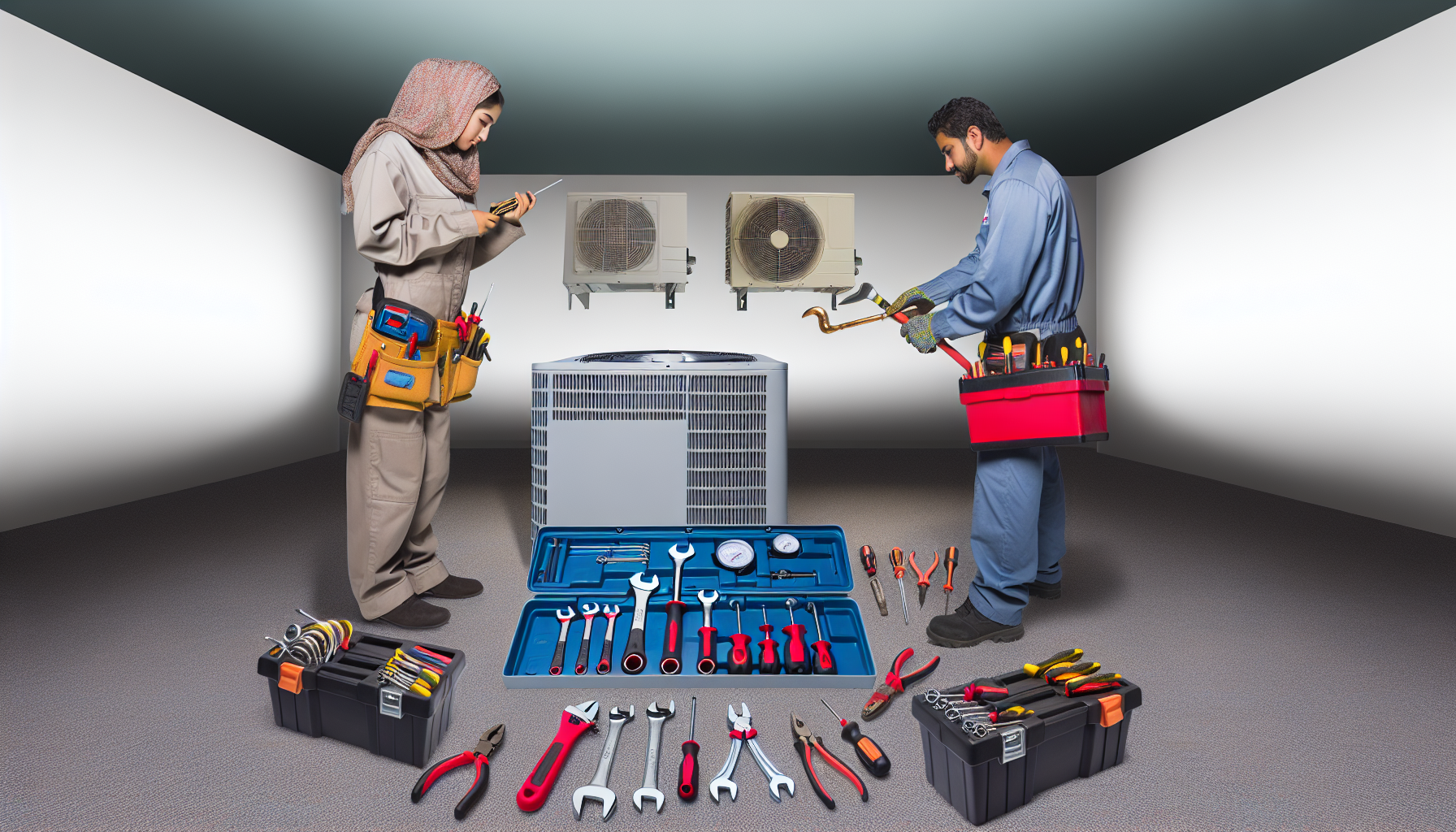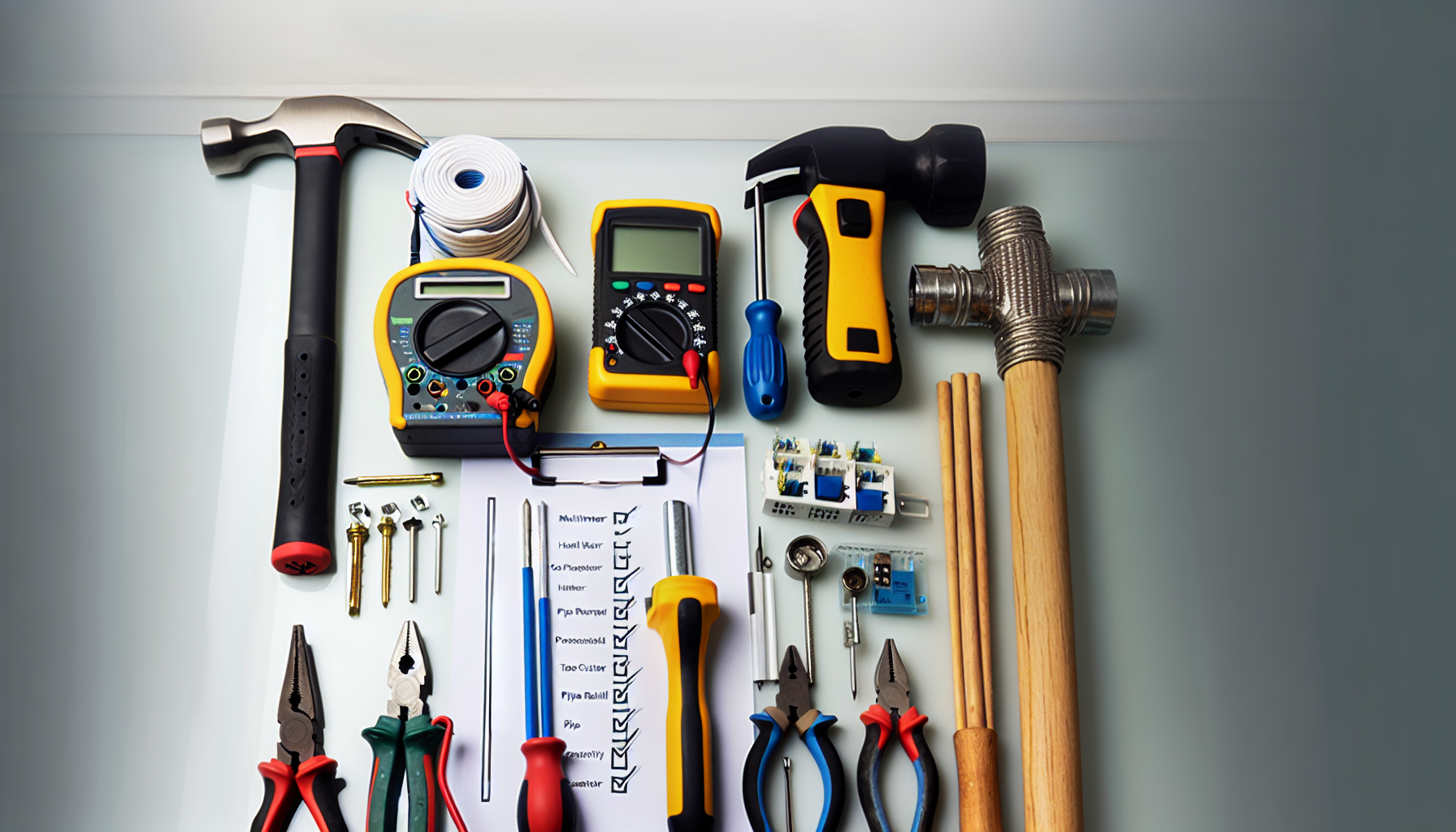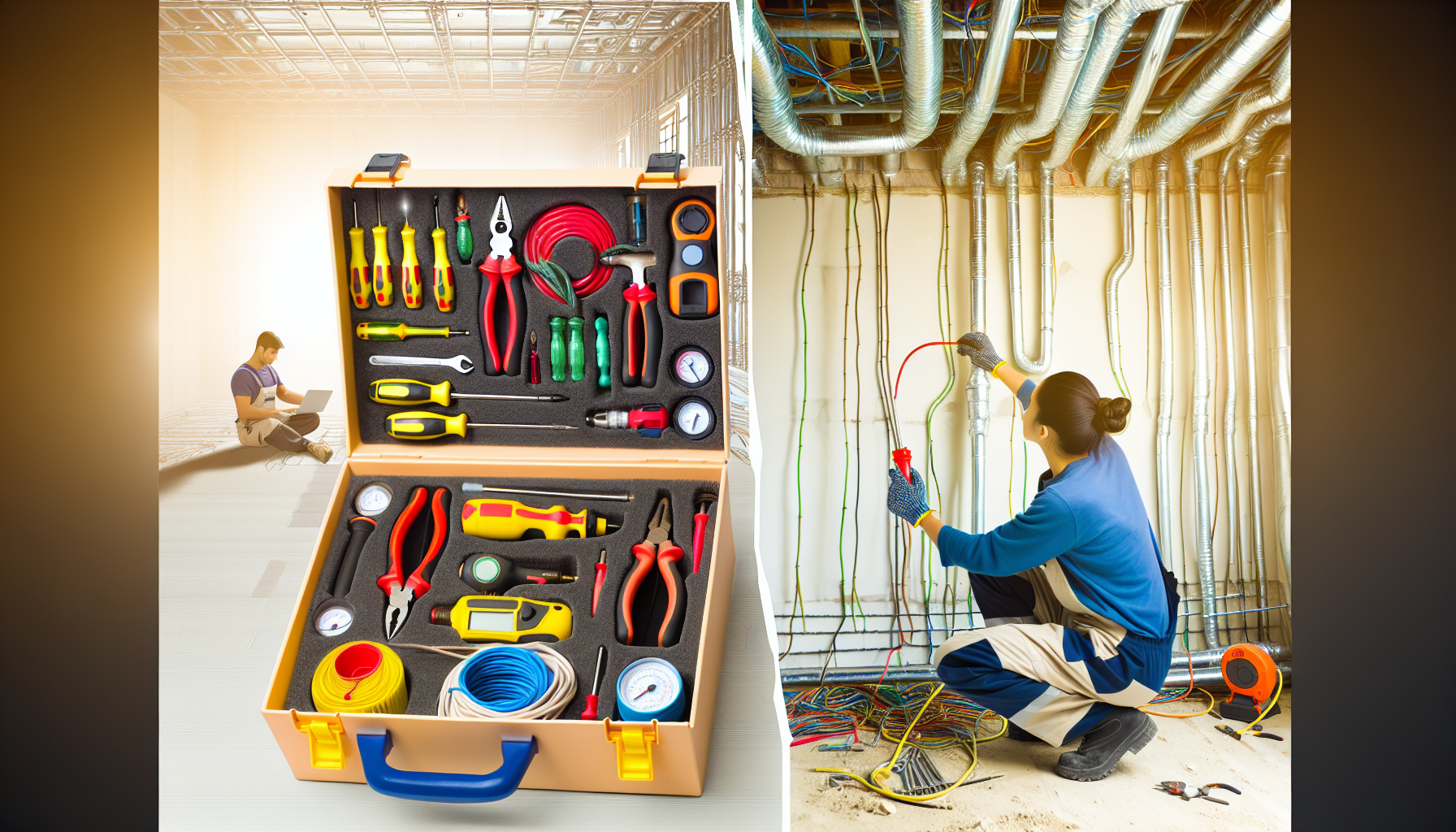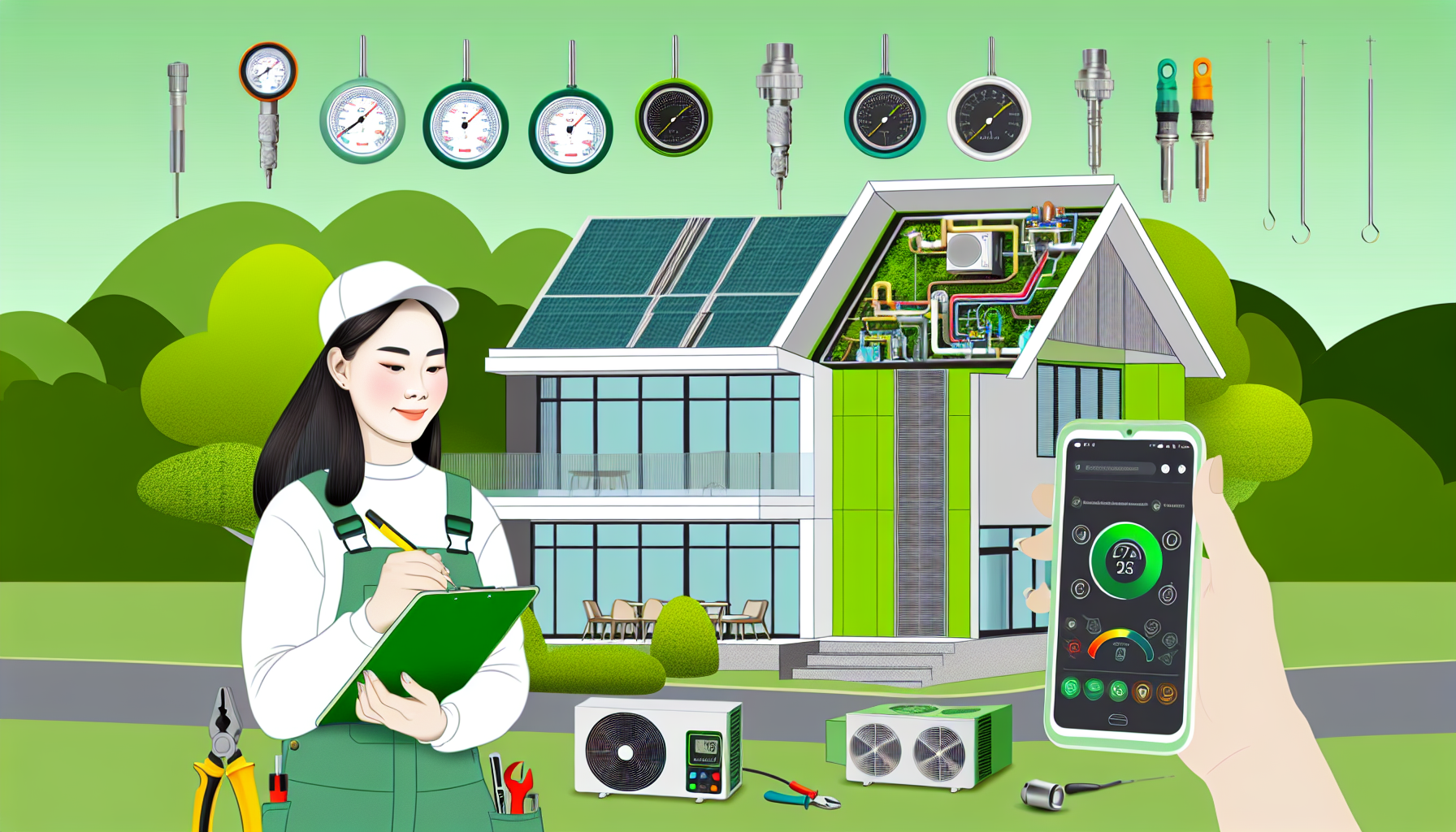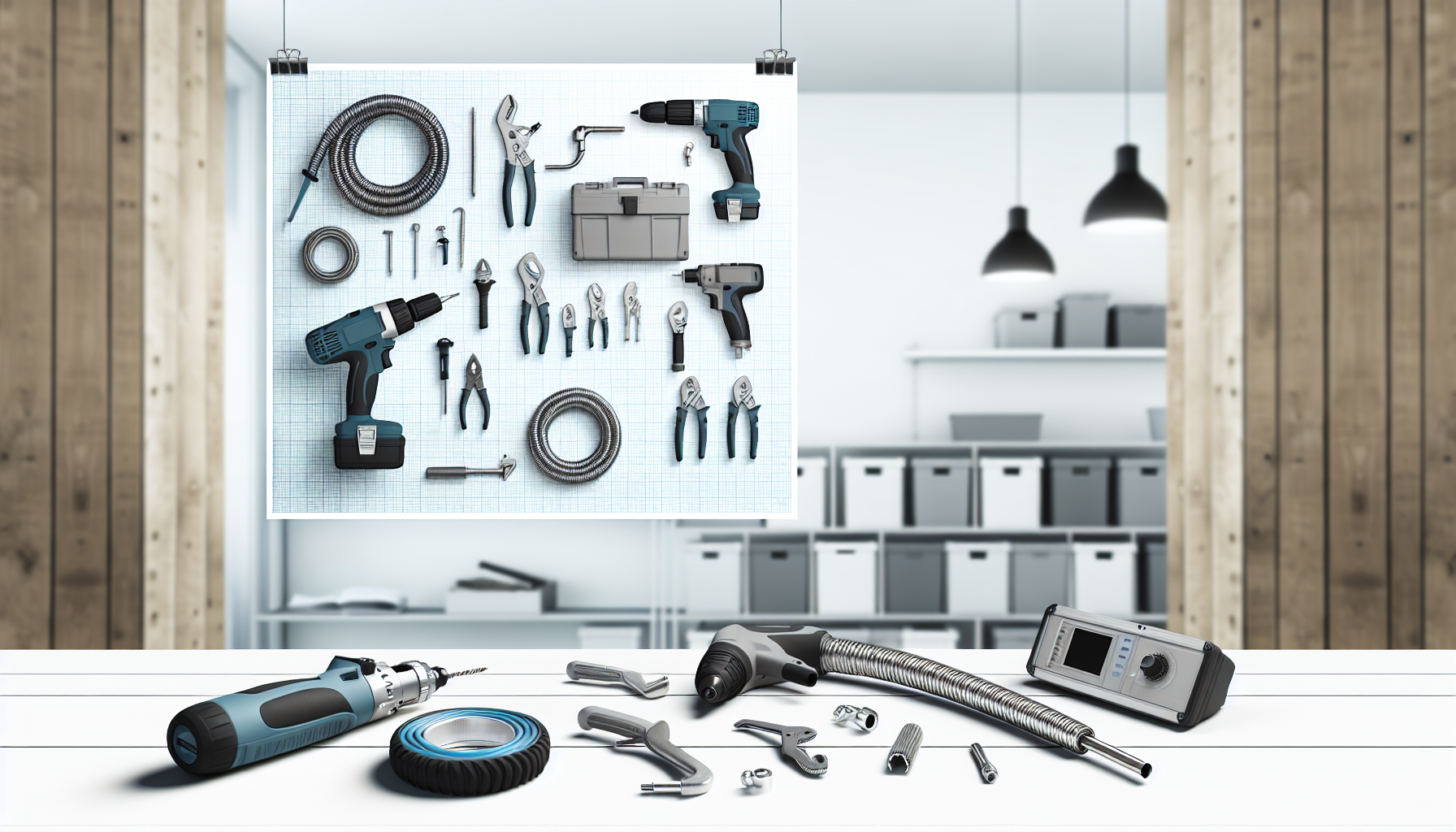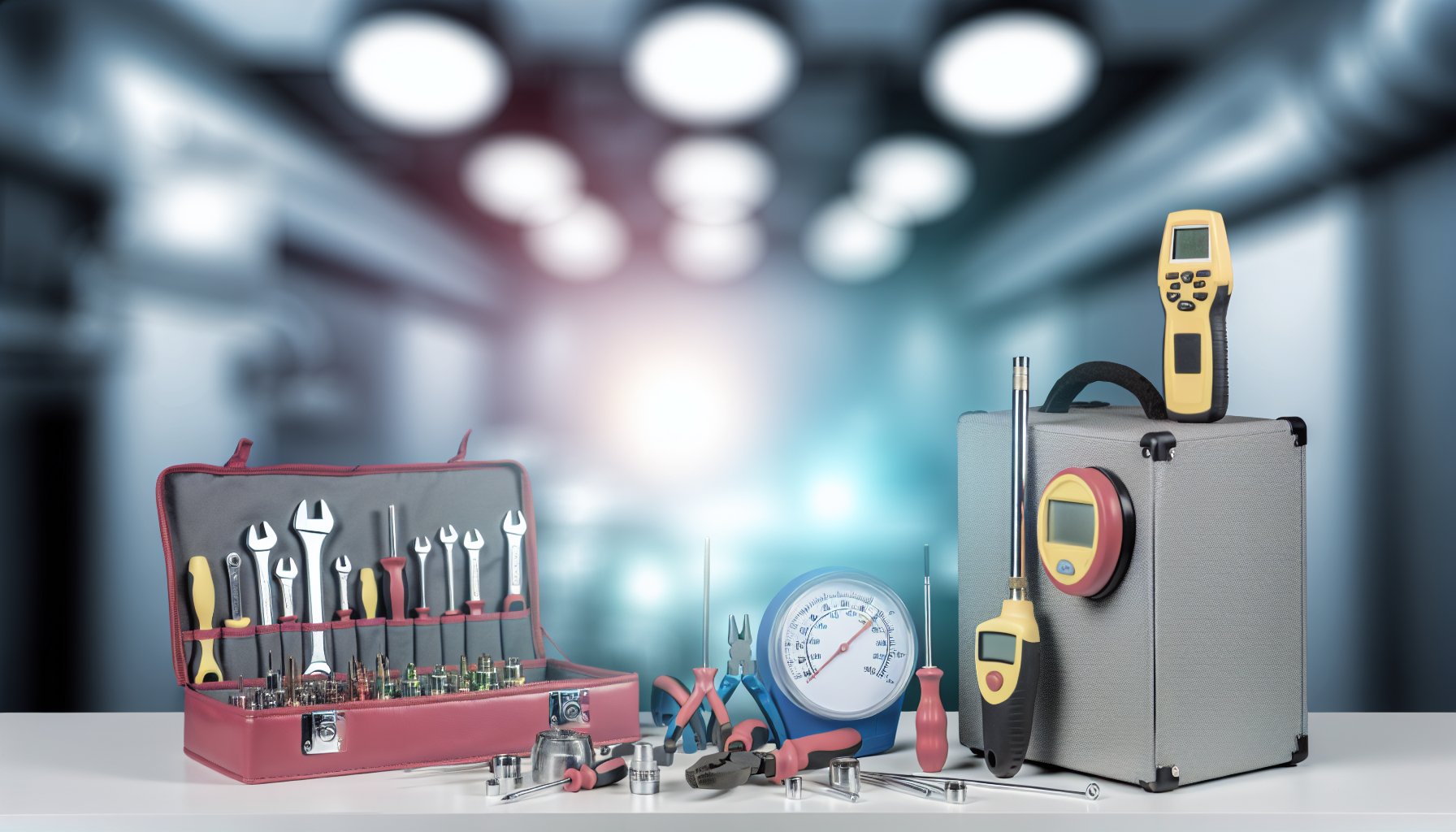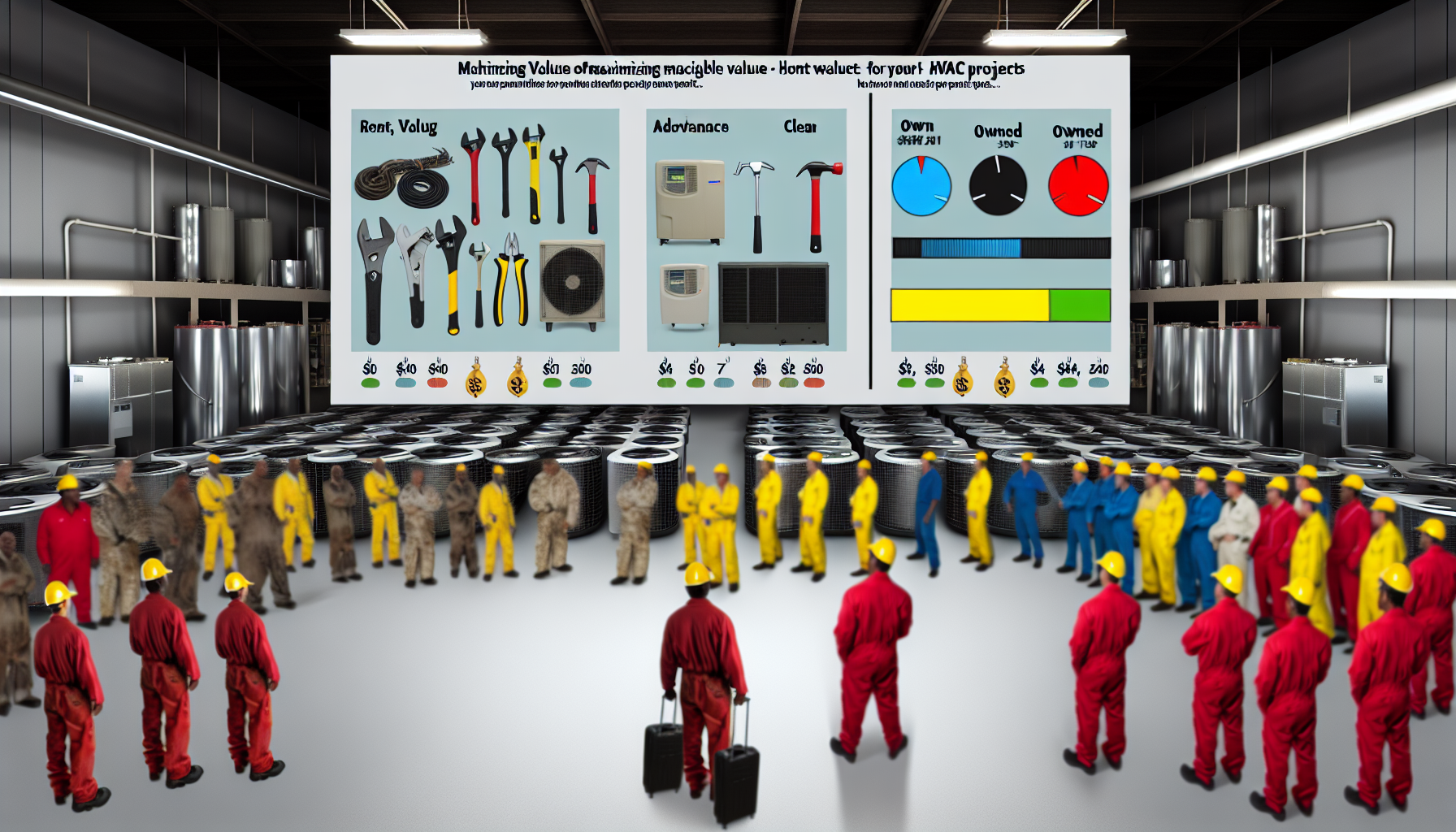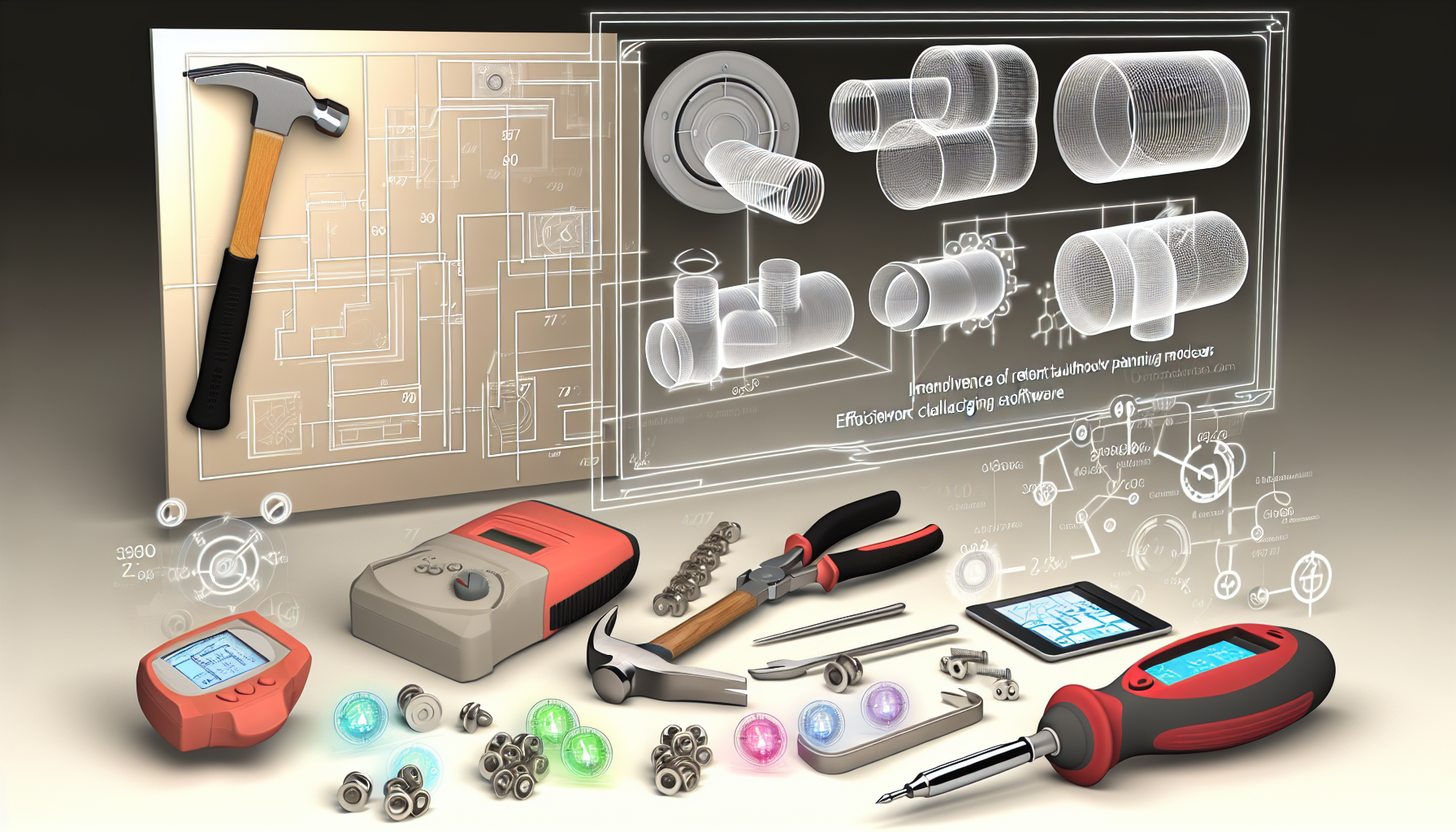Introduction to HVAC Installation Tools
If you’re looking to delve into the world of HVAC (Heating, Ventilation, and Air Conditioning) installation and assembly, having the right set of tools can make all the difference. Whether you’re a professional looking to brush up on your essentials or a complete beginner, this guide will walk you through the various tools required for HVAC systems installation and maintenance, ensuring that you’re well-prepared for your next project.
The Must-Have Tools for HVAC Beginners
For anyone starting in the HVAC industry, there are certain tools that are absolutely essential. Here’s a list of must-have tools that every HVAC technician should have:
- Screwdrivers: A variety of sizes and types, including flathead and Phillips, are indispensable for opening panels and securing components.
- Wrenches: Adjustable wrenches and a set of open-ended or box wrenches will be needed for working on small to large bolts and nuts.
- Pliers: Standard, needle-nose, and wire-stripping pliers are crucial for gripping, twisting, and cutting wires.
- Hammer: A claw hammer is useful for various tasks, including securing brackets or small demolition work during an install.
- Measuring Tape or Laser Measure: Precise measurements are important in HVAC work for calculating the lengths of pipes and gauging spaces for equipment.
- Level: Ensuring that HVAC components are perfectly horizontal or vertical is key for proper operation and aesthetics.
- Drill: A good quality cordless drill with various drill and screwdriver bits can significantly expedite your assembly and installation process.
- Wire Cutters: For cutting and manipulating various sizes of wiring found within HVAC systems.
- Flashlight or Work Light: HVAC work often requires navigating dark and cramped spaces. Proper lighting is essential for safety and precision.
- Multimeter: An essential diagnostic tool for testing electrical components for continuity, voltage, and other electrical properties.
Additional HVAC Specialty Tools
Beyond the basics, there are specialty tools that are highly beneficial for specific HVAC tasks:
- Refrigeration Gauges: These gauges are used to check pressure in air conditioning systems and are critical for diagnosing and servicing them.
- Thermometer: To measure the temperatures of air and refrigerants accurately, a thermometer that’s designed for HVAC use is necessary.
- Tube Cutter: For precise cutting of refrigeration lines without causing damage, a tube cutter is much better than a standard saw.
- Swaging Tool: This tool is used to widen the end of copper tubing to fit onto another tube for soldering.
- Deburring Tool: After cutting metal tubing, this tool cleans up the rough edges to prevent damage and leaks.
- Manifold Gauge: Used for pressure-checking and diagnosing air conditioning units, these gauges are essential for HVAC professionals.
- Vacuum Pump: Before charging an air conditioning system with refrigerant, a vacuum pump is used to remove any moisture and air from the lines.
- Soldering or Brazing Kit: This is used for joining metal components in HVAC systems, particularly in copper refrigerant lines.
Safety Equipment
Safety should always be a top priority in HVAC work. Below is the list of safety equipment that is considered essential:
- Gloves: To protect your hands from sharp metal edges, wires, and the potential of burns from hot equipment or soldering.
- Safety Glasses: Protective eyewear is important for safeguarding your eyes against flying debris and dust.
- Ear Protection: Prolonged exposure to loud noises in HVAC work can damage hearing. Ear plugs or earmuffs should be worn as necessary.
- Respirator: When dealing with insulation, refrigerants, or dusty environments, a respirator might be necessary prevent inhalation of harmful particles.
Accessories and Consumables
There are additional accessories and consumable items one should have on hand during HVAC installation and assembly:
- Electrical Tape: For insulating and securing electrical connections.
- Duct Tape: Known for its strength and versatility, duct tape is a common sight in any HVAC technician’s toolkit.
- Zip Ties: These are great for organizing wires and ensuring they’re neatly tucked away.
- Screws, Nuts, and Bolts: Keep an assortment of fasteners on hand for securing components.
- Pipe Dope or Teflon Tape: For creating watertight seals around threaded pipe joints.
Advanced Tools for HVAC Experts
For more experienced technicians, the following tools can greatly enhance efficiency and capabilities:
- Sheet Metal Shears: To cut through ductwork and other metal components.
- Flaring Tool: For expanding copper tubing prior to soldering or brazing.
- Duct Crimper: Used for fitting ductwork together properly.
- Combustion Analyzer: This is a sophisticated tool for testing the efficiency of furnaces and identifying potential safety issues.
- Static Pressure Gauge: Helps to diagnose air flow issues within the HVAC system.
Tips for Assembling Your HVAC Toolkit
When assembling your HVAC toolkit, consider the following tips to ensure you’re prepared for any job:
- Invest in quality tools that are durable and reliable – they will last longer and often come with warranties.
- Choose tools that are ergonomic and designed for ease of use to help reduce fatigue and prevent injury.
- Store your tools in a well-organized tool bag or box to keep them protected and easy to find.
- Regularly clean and maintain your tools to keep them in good working condition.
- Stay up-to-date with the latest tools and technologies in the HVAC industry through continuous learning and training.
FAQs About HVAC Installation and Assembly Tools
To wrap up this guide, here are some frequently asked questions about HVAC tools:
- Q: What is the most important tool for HVAC technicians?
A: While all tools mentioned are important, if you had to choose one, a multimeter is perhaps the most essential as it is critical for diagnosing electrical issues. - Q: Can I use general-purpose tools for HVAC work?
A: Yes, some general-purpose tools such as screwdrivers, hammers, and drills are cross-functional. However, specialized HVAC tools are necessary for certain tasks. - Q: How often should I replace my HVAC tools?
A: This depends on the quality of the tools and how often they are used and maintained. Regular inspection should guide when replacements are necessary. - Q: Where can I purchase HVAC tools?
A: HVAC tools can be purchased at most hardware stores, specialty HVAC retailers, and online platforms.


